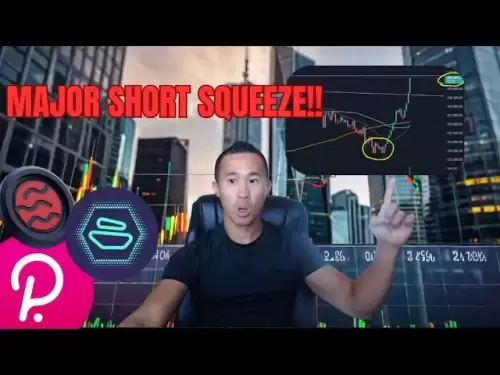-
 Bitcoin
Bitcoin $109,177.6326
2.53% -
 Ethereum
Ethereum $2,584.8670
5.97% -
 Tether USDt
Tether USDt $1.0004
0.02% -
 XRP
XRP $2.2647
3.51% -
 BNB
BNB $661.1888
1.65% -
 Solana
Solana $155.2711
4.46% -
 USDC
USDC $0.9999
0.00% -
 TRON
TRON $0.2828
0.62% -
 Dogecoin
Dogecoin $0.1726
7.64% -
 Cardano
Cardano $0.5955
7.45% -
 Hyperliquid
Hyperliquid $39.9138
5.49% -
 Sui
Sui $2.9523
9.42% -
 Bitcoin Cash
Bitcoin Cash $503.7709
-0.42% -
 Chainlink
Chainlink $13.7043
5.12% -
 UNUS SED LEO
UNUS SED LEO $8.9817
0.37% -
 Avalanche
Avalanche $18.9418
8.05% -
 Stellar
Stellar $0.2421
4.49% -
 Toncoin
Toncoin $2.8918
3.49% -
 Shiba Inu
Shiba Inu $0.0...01203
5.45% -
 Litecoin
Litecoin $89.0597
5.79% -
 Hedera
Hedera $0.1581
7.76% -
 Monero
Monero $323.4281
2.68% -
 Polkadot
Polkadot $3.6028
8.03% -
 Bitget Token
Bitget Token $4.6083
2.64% -
 Dai
Dai $1.0000
0.01% -
 Ethena USDe
Ethena USDe $1.0001
-0.01% -
 Uniswap
Uniswap $7.4784
8.36% -
 Pepe
Pepe $0.0...01043
10.49% -
 Aave
Aave $279.1304
7.36% -
 Pi
Pi $0.4971
1.95%
How do I set the transaction fee of the Exodus wallet?
To set transaction fees in Exodus, access the 'Send' section, choose your fee level from 'Low', 'Medium', or 'High', and consider network conditions for optimal speed and cost.
Apr 07, 2025 at 12:42 am
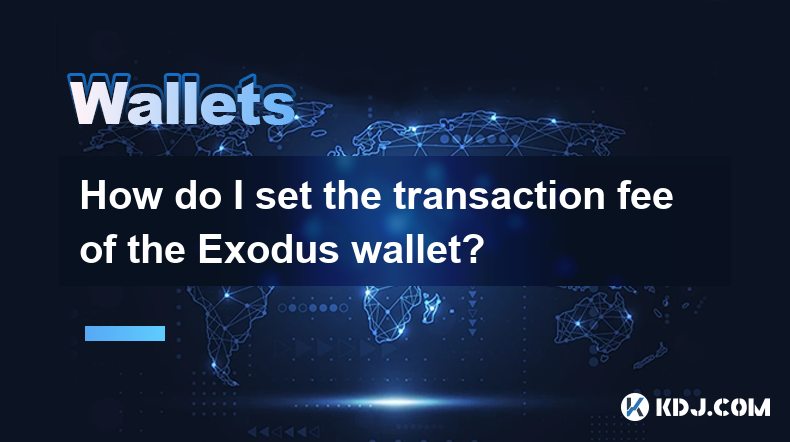
Setting the transaction fee in the Exodus wallet is a crucial aspect of managing your cryptocurrency transactions effectively. The transaction fee determines how quickly your transaction will be processed on the blockchain. In this article, we will guide you through the process of setting the transaction fee in the Exodus wallet, ensuring you can optimize your transactions for speed and cost.
Understanding Transaction Fees in Exodus
Before diving into the steps to set the transaction fee, it's important to understand what transaction fees are and why they matter. Transaction fees are payments made to miners or validators on the blockchain network for processing and confirming your transactions. In the Exodus wallet, these fees can be adjusted to prioritize your transaction's speed or to save on costs.
Accessing the Transaction Fee Settings
To begin setting your transaction fee in the Exodus wallet, you first need to access the transaction settings. Here's how you can do it:
- Open the Exodus wallet on your device.
- Navigate to the 'Send' section where you initiate transactions.
- Select the cryptocurrency you wish to send.
- Enter the recipient's address and the amount you want to send.
- Look for the 'Transaction Fee' or 'Network Fee' option, usually located below the amount field.
Adjusting the Transaction Fee
Once you have accessed the transaction fee settings, you can adjust the fee according to your preferences. Exodus typically offers three fee options: 'Low', 'Medium', and 'High'. Here's how to adjust the fee:
- Click on the 'Transaction Fee' dropdown menu.
- Choose from the available options: 'Low' for the cheapest and slowest option, 'Medium' for a balanced approach, and 'High' for the fastest processing time.
- If you want more control, some cryptocurrencies in Exodus allow you to set a custom fee. Look for a 'Custom' option if available, and enter your desired fee amount.
Considerations When Setting the Transaction Fee
When setting your transaction fee, consider the following factors to make an informed decision:
- Transaction Urgency: If you need your transaction to be processed quickly, opt for a higher fee. This is particularly important during times of high network congestion.
- Cost Savings: If you are not in a hurry, choosing a lower fee can save you money, though it may take longer for your transaction to be confirmed.
- Network Conditions: Check the current state of the blockchain network. During peak times, even a 'High' fee might not guarantee quick processing, while during off-peak times, a 'Low' fee might suffice.
Confirming and Sending the Transaction
After setting your desired transaction fee, you need to confirm and send the transaction. Here's how to proceed:
- Review all the transaction details, including the recipient's address, the amount, and the selected transaction fee.
- If everything looks correct, click on the 'Send' or 'Confirm' button to initiate the transaction.
- You will be prompted to enter your wallet password or use your biometric authentication to finalize the transaction.
- Once confirmed, the transaction will be broadcast to the blockchain network, and you can track its progress in the Exodus wallet.
Monitoring and Adjusting Fees Post-Transaction
After sending a transaction, you might want to monitor its status and possibly adjust future fees based on your experience. Here's what you can do:
- Use the 'Transactions' tab in Exodus to track the status of your sent transaction.
- If the transaction is taking longer than expected, consider increasing the fee for future transactions during similar network conditions.
- Keep an eye on the network's fee trends and adjust your strategy accordingly to balance speed and cost effectively.
Advanced Tips for Optimizing Transaction Fees
For users looking to further optimize their transaction fees, consider these advanced tips:
- Batch Transactions: If you need to send multiple transactions, consider batching them into a single transaction to save on fees.
- Use SegWit Addresses: For Bitcoin transactions, using SegWit addresses can significantly reduce fees.
- Stay Informed: Regularly check cryptocurrency forums and resources to stay updated on the best practices for managing transaction fees.
Common Questions About Setting Transaction Fees in Exodus
Q: Can I change the transaction fee after sending a transaction in Exodus?
A: No, once a transaction is sent, the fee cannot be changed. It's important to set the fee correctly before sending.
Q: What happens if I set the transaction fee too low in Exodus?
A: If the fee is too low, your transaction might take longer to be confirmed or might not be confirmed at all during times of high network congestion.
Q: Does Exodus charge any additional fees for setting transaction fees?
A: No, Exodus does not charge any additional fees for setting transaction fees. The fees you set are paid directly to the blockchain network.
Q: How can I estimate the optimal transaction fee in Exodus?
A: You can use online fee estimators or check the current network conditions to estimate the optimal fee. Exodus also provides suggested fee levels based on current network conditions.
Q: Can I set a custom transaction fee for all cryptocurrencies in Exodus?
A: Not all cryptocurrencies in Exodus support custom fee settings. Check the specific cryptocurrency's settings to see if custom fees are available.
By following these steps and considering the factors mentioned, you can effectively manage your transaction fees in the Exodus wallet, ensuring your transactions are processed efficiently and cost-effectively.
Disclaimer:info@kdj.com
The information provided is not trading advice. kdj.com does not assume any responsibility for any investments made based on the information provided in this article. Cryptocurrencies are highly volatile and it is highly recommended that you invest with caution after thorough research!
If you believe that the content used on this website infringes your copyright, please contact us immediately (info@kdj.com) and we will delete it promptly.
- Meme Coin Mania: Is BTC Bull the Next Big Thing in a Limited Time BTC Bull Run?
- 2025-07-03 12:30:11
- Bitcoin Soars to $109,000: What's Fueling the Crypto Rally?
- 2025-07-03 10:30:13
- Splatterhouse Rocks Retro Scene: A UK Magazine Deep Dive
- 2025-07-03 12:30:11
- Bitcoin, the Senate Bill, and $107K: A Wild Ride on Capitol Hill
- 2025-07-03 12:50:11
- Chainlink's Chart Patterns Hint at a Big Move: Decoding the LINK Price
- 2025-07-03 10:50:12
- Shiba Inu, Solana Uptrend, Bitcoin Breakout: Decoding the Crypto Buzz
- 2025-07-03 10:50:12
Related knowledge

How to lock my Phantom wallet extension?
Jul 03,2025 at 11:14am
What Is the Phantom Wallet and Why Lock It?The Phantom wallet is a popular non-custodial cryptocurrency wallet designed for interacting with the Solana blockchain. Supporting both browser extensions and mobile apps, Phantom allows users to store, send, receive, and stake SOL tokens, as well as interact with decentralized applications (dApps). Securing y...

Does Phantom wallet offer two-factor authentication (2FA)?
Jul 03,2025 at 09:00am
Understanding Phantom Wallet and Its Security FeaturesPhantom wallet is a widely used non-custodial cryptocurrency wallet that supports the Solana blockchain. It allows users to store, send, receive, and interact with decentralized applications (dApps) seamlessly. As security is a top priority for any crypto wallet user, security features like two-facto...

What is "rent" on Solana and how does it affect my Phantom wallet?
Jul 02,2025 at 08:35pm
Understanding 'Rent' on SolanaIn the context of Solana, the term 'rent' refers to a storage fee that users pay for maintaining data on the blockchain. Unlike Ethereum, where storage costs are paid once via gas fees during contract deployment, Solana implements a recurring cost model to ensure efficient usage of network resources. This means that any acc...
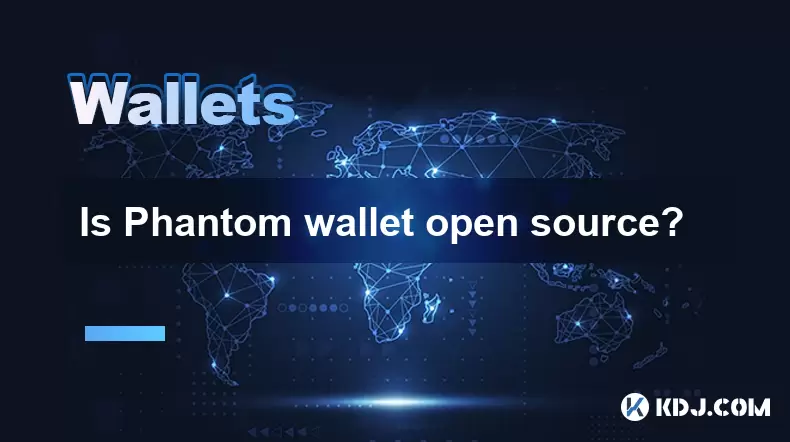
Is Phantom wallet open source?
Jul 03,2025 at 12:29am
What is Phantom Wallet?Phantom wallet is a non-custodial cryptocurrency wallet primarily designed for the Solana blockchain. It allows users to store, send, receive, and interact with decentralized applications (dApps) on the Solana network. The wallet is available as a browser extension and mobile application, offering a seamless experience for both be...
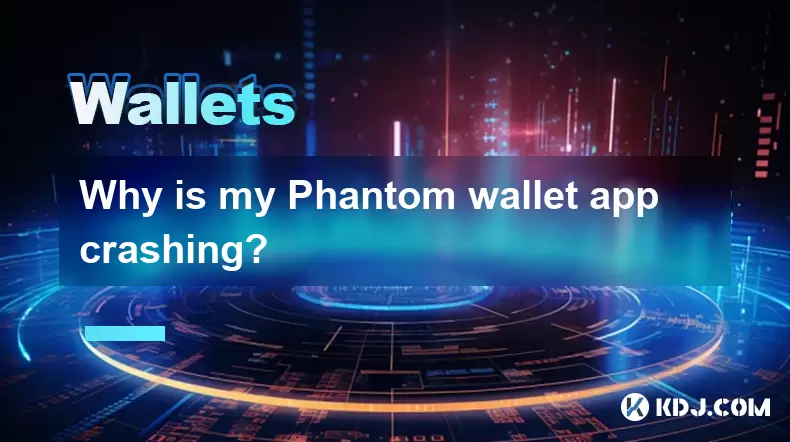
Why is my Phantom wallet app crashing?
Jul 02,2025 at 07:35pm
Understanding Phantom Wallet App CrashesIf you're experiencing issues with the Phantom wallet app crashing, you're not alone. Many users have reported similar problems, especially during high network activity or after recent updates. Phantom is a popular Solana-based wallet that allows users to store, send, and receive SOL tokens as well as interact wit...
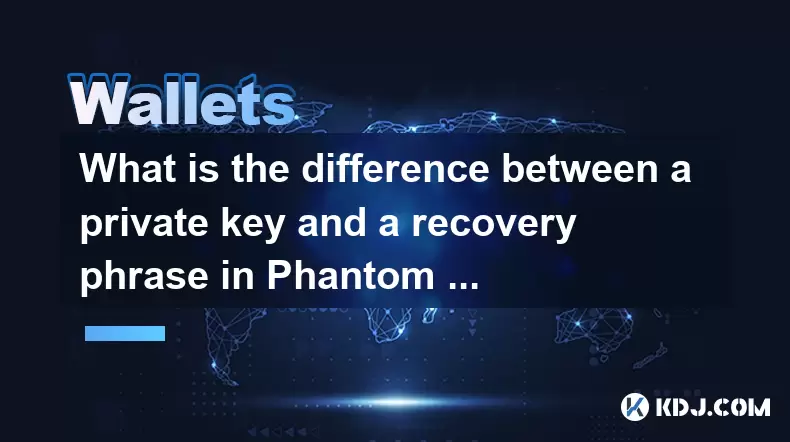
What is the difference between a private key and a recovery phrase in Phantom wallet?
Jul 02,2025 at 09:57am
Understanding the Basics of Phantom WalletPhantom wallet is a non-custodial digital wallet primarily used for interacting with the Solana blockchain. It allows users to store, send, and receive SOL tokens and other digital assets like NFTs. Non-custodial means that the user retains full control over their private keys and recovery phrases. Understanding...

How to lock my Phantom wallet extension?
Jul 03,2025 at 11:14am
What Is the Phantom Wallet and Why Lock It?The Phantom wallet is a popular non-custodial cryptocurrency wallet designed for interacting with the Solana blockchain. Supporting both browser extensions and mobile apps, Phantom allows users to store, send, receive, and stake SOL tokens, as well as interact with decentralized applications (dApps). Securing y...

Does Phantom wallet offer two-factor authentication (2FA)?
Jul 03,2025 at 09:00am
Understanding Phantom Wallet and Its Security FeaturesPhantom wallet is a widely used non-custodial cryptocurrency wallet that supports the Solana blockchain. It allows users to store, send, receive, and interact with decentralized applications (dApps) seamlessly. As security is a top priority for any crypto wallet user, security features like two-facto...

What is "rent" on Solana and how does it affect my Phantom wallet?
Jul 02,2025 at 08:35pm
Understanding 'Rent' on SolanaIn the context of Solana, the term 'rent' refers to a storage fee that users pay for maintaining data on the blockchain. Unlike Ethereum, where storage costs are paid once via gas fees during contract deployment, Solana implements a recurring cost model to ensure efficient usage of network resources. This means that any acc...

Is Phantom wallet open source?
Jul 03,2025 at 12:29am
What is Phantom Wallet?Phantom wallet is a non-custodial cryptocurrency wallet primarily designed for the Solana blockchain. It allows users to store, send, receive, and interact with decentralized applications (dApps) on the Solana network. The wallet is available as a browser extension and mobile application, offering a seamless experience for both be...

Why is my Phantom wallet app crashing?
Jul 02,2025 at 07:35pm
Understanding Phantom Wallet App CrashesIf you're experiencing issues with the Phantom wallet app crashing, you're not alone. Many users have reported similar problems, especially during high network activity or after recent updates. Phantom is a popular Solana-based wallet that allows users to store, send, and receive SOL tokens as well as interact wit...

What is the difference between a private key and a recovery phrase in Phantom wallet?
Jul 02,2025 at 09:57am
Understanding the Basics of Phantom WalletPhantom wallet is a non-custodial digital wallet primarily used for interacting with the Solana blockchain. It allows users to store, send, and receive SOL tokens and other digital assets like NFTs. Non-custodial means that the user retains full control over their private keys and recovery phrases. Understanding...
See all articles





















